

You'll find plenty of ways to entertain yourself in St Kitts. mikolajn/Getty Images
Fittingly shaped like a tropical fish, St Kitts packs a lot to see and do in its lush and historical expanse.
One of the Caribbean’s best stone forts dominates the north, while a string of beaches dot the south. Distinct mountain ranges – and an extinct volcano – add texture.
Besides the fortress, the island’s other unique attraction is its former sugarcane railroad, now repurposed for sightseeing. St Kitts is a major cruise ship port, and there’s plenty to fit all budgets, from a free day on a beach to wandering the characterful streets of the main city, Basseterre.
Whether you’re just here for a day, on a visit from neighboring Nevis or settling in for a longer stay, you’ll find plenty of extraordinary things to do in St Kitts: here are the very best.
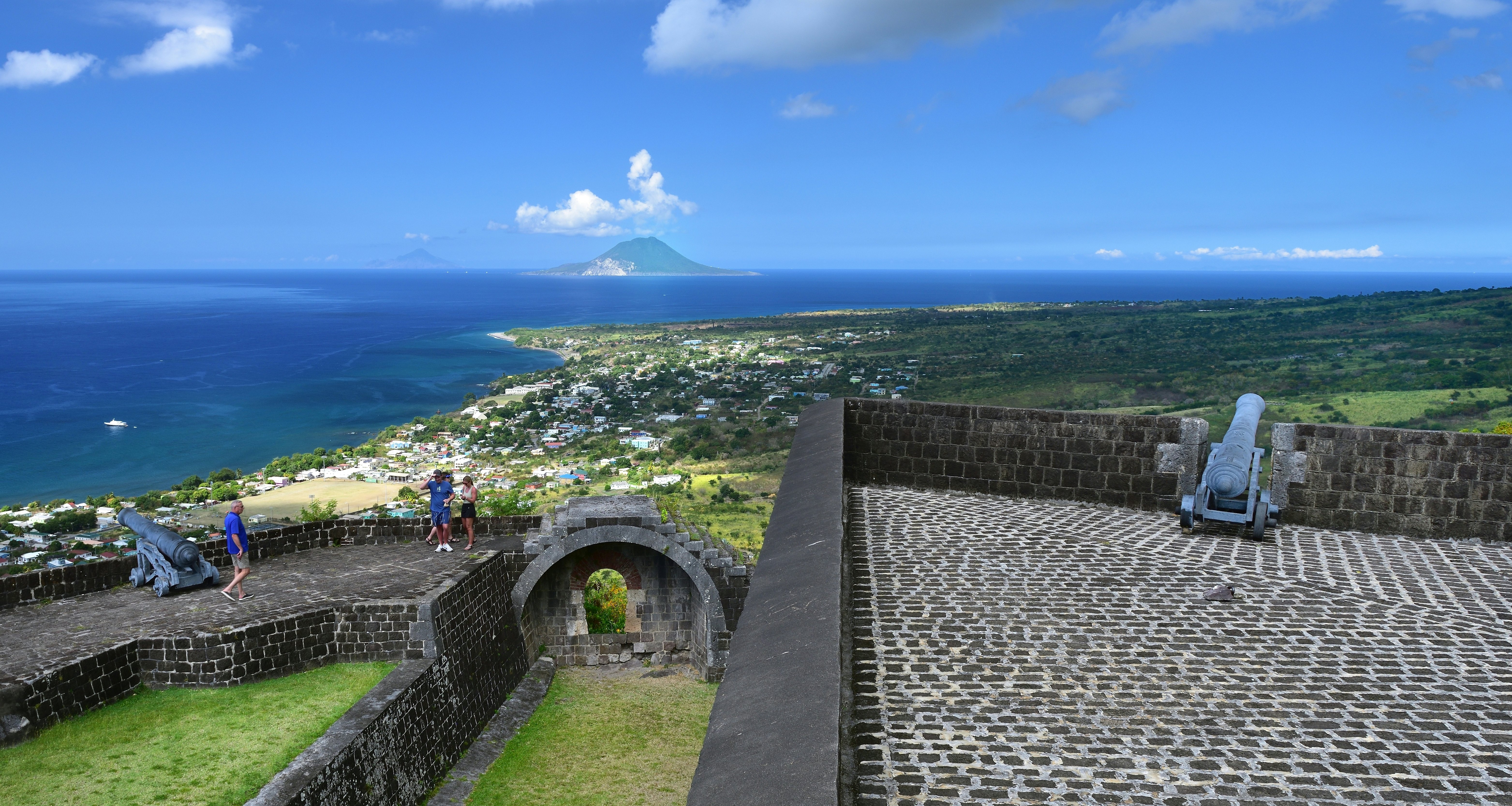
1. Explore Brimstone Hill Fortress National Park
St Kitts is home to one of the best stone fortresses in the western hemisphere. The British laid the first huge, black volcanic stone in 1690.
Over the next centuries, the fortress was fought over by the Brits and the French, who occupied it from 1782 to 1794 after an intense siege.
Imagine invaders sailing your way as you revel in the views out to sea. Exhibits detail the harsh lives of soldiers stationed here, and the even harsher lives of the enslaved people forced to construct the 2m-thick (7ft) walls. If you only make one excursion to northern St Kitts, make it this UNESCO-recognized fort.
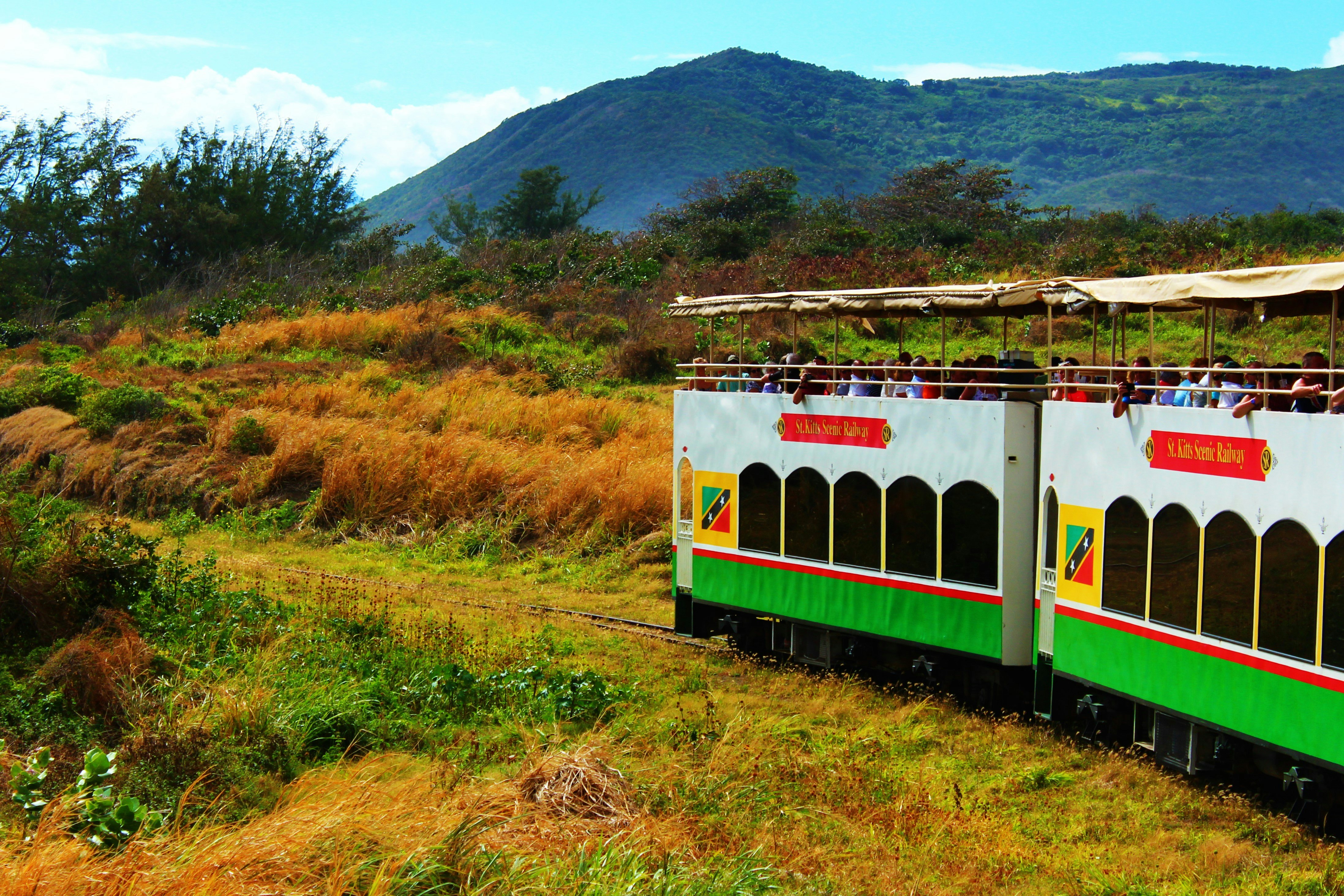
2. Ride the St Kitts Scenic Railway
Cheerfully billing itself as the “last railway in the West Indies,” this rattling, narrow-gauge train offers a leisurely 29km (18 miles) tour around a northern portion of St Kitts.
Opened in 1926, the railway once fully circled the main part of the island and allowed intensive sugarcane production to continue until the last crop in 2005.
The trains have unusual double-deck cars with shaded, open-air top decks – an ideal perch for taking in the island’s natural beauty. The circular tours also include a 19km (12 miles) portion by bus that returns you to the terminal near the airport.
3. Hit the surf at Frigate Bay North
The Atlantic-facing beach on the isthmus southeast of Basseterre gets pounded by waves from the open ocean for much of the year.
The breakers can offer thrilling swimming, although they also demand respect and caution. Offshore reefs moderate the action slightly, but still, this is the beach to come to for pounding surf.
Local tip: Head to the north end away from resorts and condos to escape the crowds.
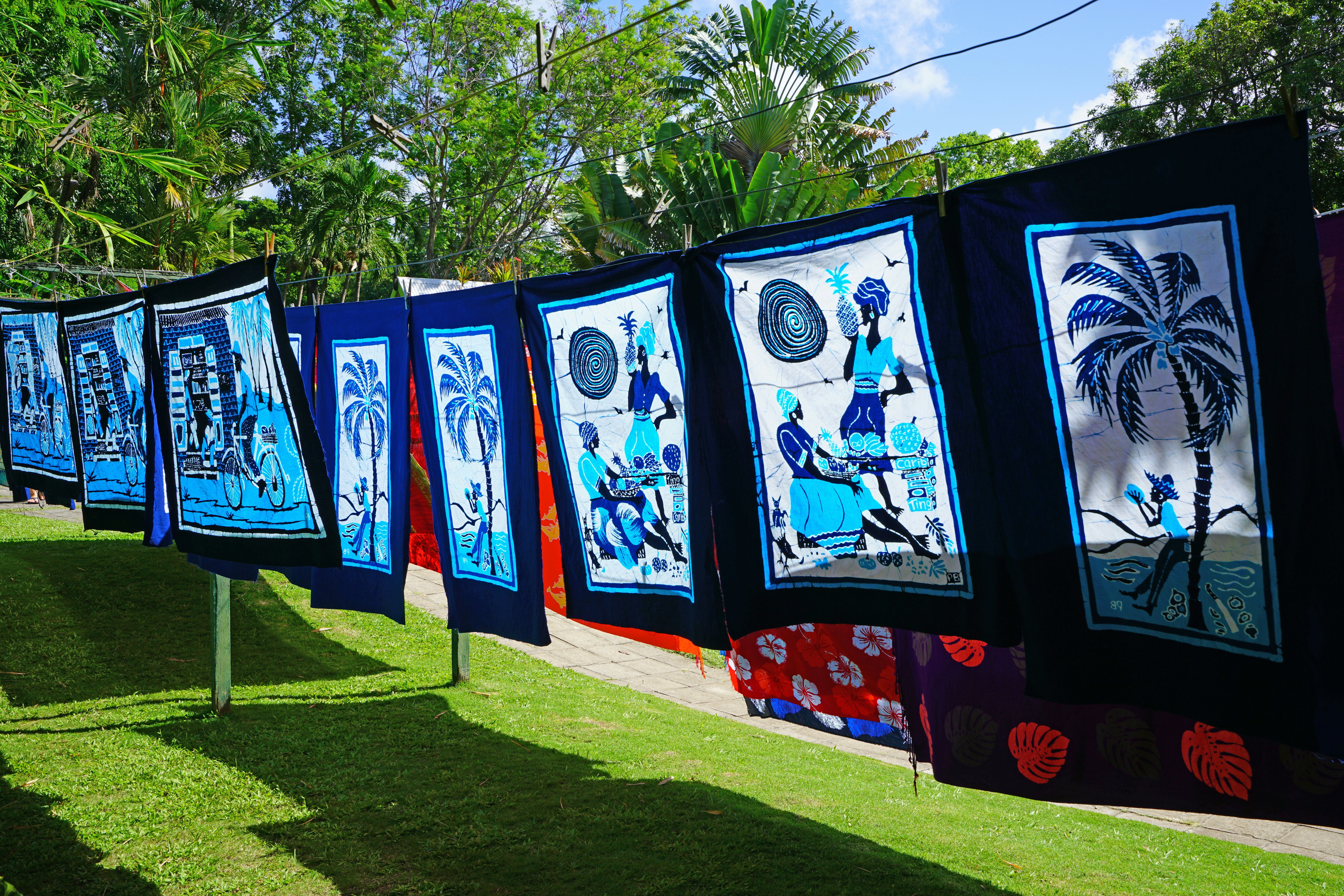
4. Experience history at Romney Manor
Few tours circle the north of the island without a stop at Romney Manor, which offers an intriguing mix of old and new attractions. The historic part of this lushly landscaped site is the partial ruin of the Wingfield Estate sugar plantation.
Dating to the 17th century, the manor house and bell tower were the hubs of a large estate that grew rich off the forced labor of hundreds of enslaved people.
A restored manor house is now home to the well-known Caribelle Batik workshop, where all manner of textiles are created using techniques imported from Indonesia.
5. Party on the Strip at Frigate Bay South
Easily walked to from its northern neighbor, this beach is better known as the Strip. It’s the focus of raucous tourist action on St Kitts and has a string of beach bars and clubs popular with revelers nearly around the clock.
Frigate Bay South isn't as scenic as its northern namesake, and people are pretty free when they’re limbering up for another drinking contest.
Planning tip: Traveling with youngsters? The protected waters here offer gentle swimming for all ages.
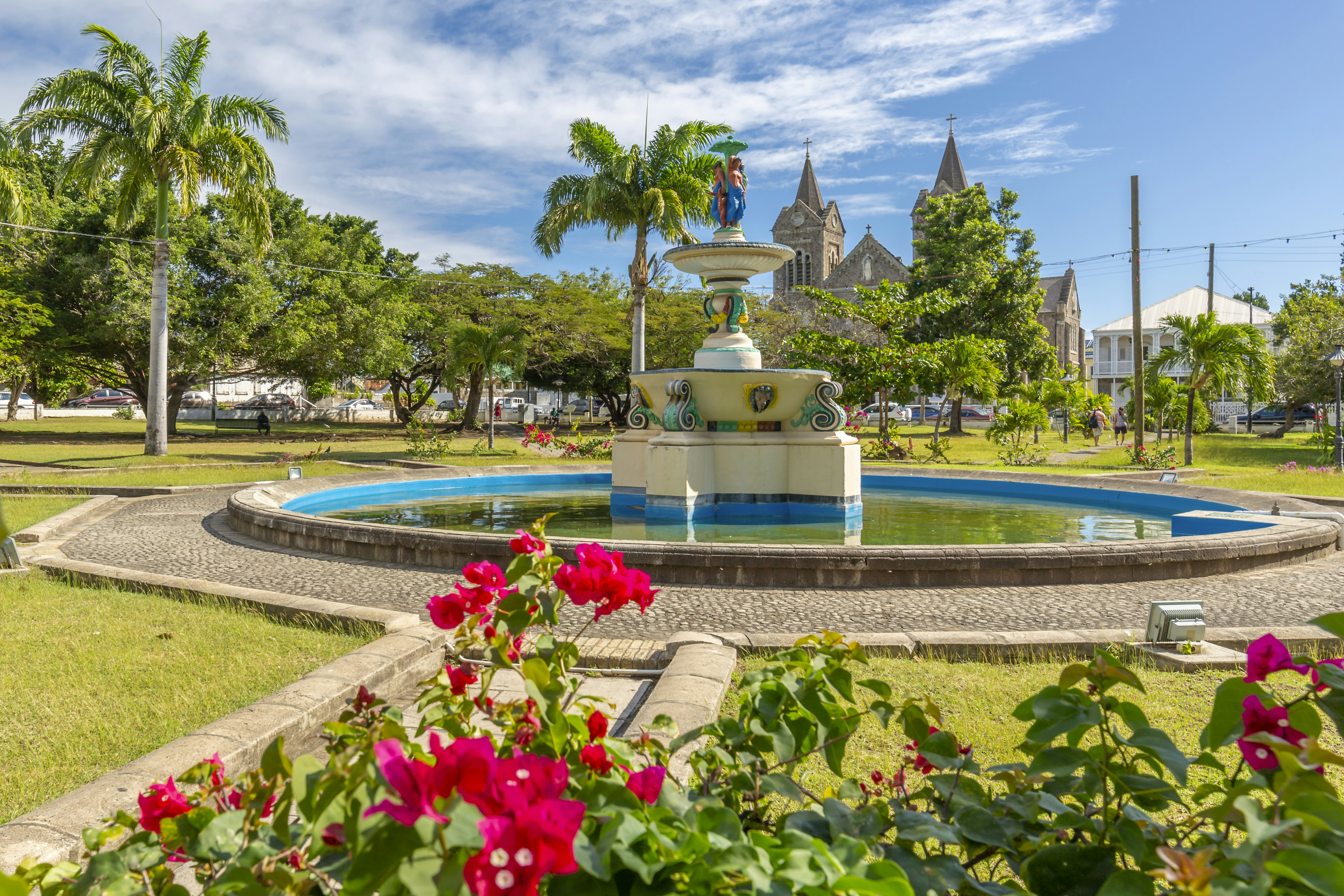
6. Tread thoughtfully at Independence Square
The green center of Basseterre is Independence Square. The brightly painted fountain at its center belies its horrific past as the local center of the trade in enslaved people – men, women and children kidnapped from Africa were bought and sold here well into the 19th century.
Today the landscaped gardens are a popular gathering spot. Palms soar over the periphery, and the island’s symbolic trees – poincianas – explode in a scarlet profusion of flowers during the summer.
Look for bars on the basement windows of the building along the south side of the square; this was one of the fetid dungeons where enslaved people were held pending sale.
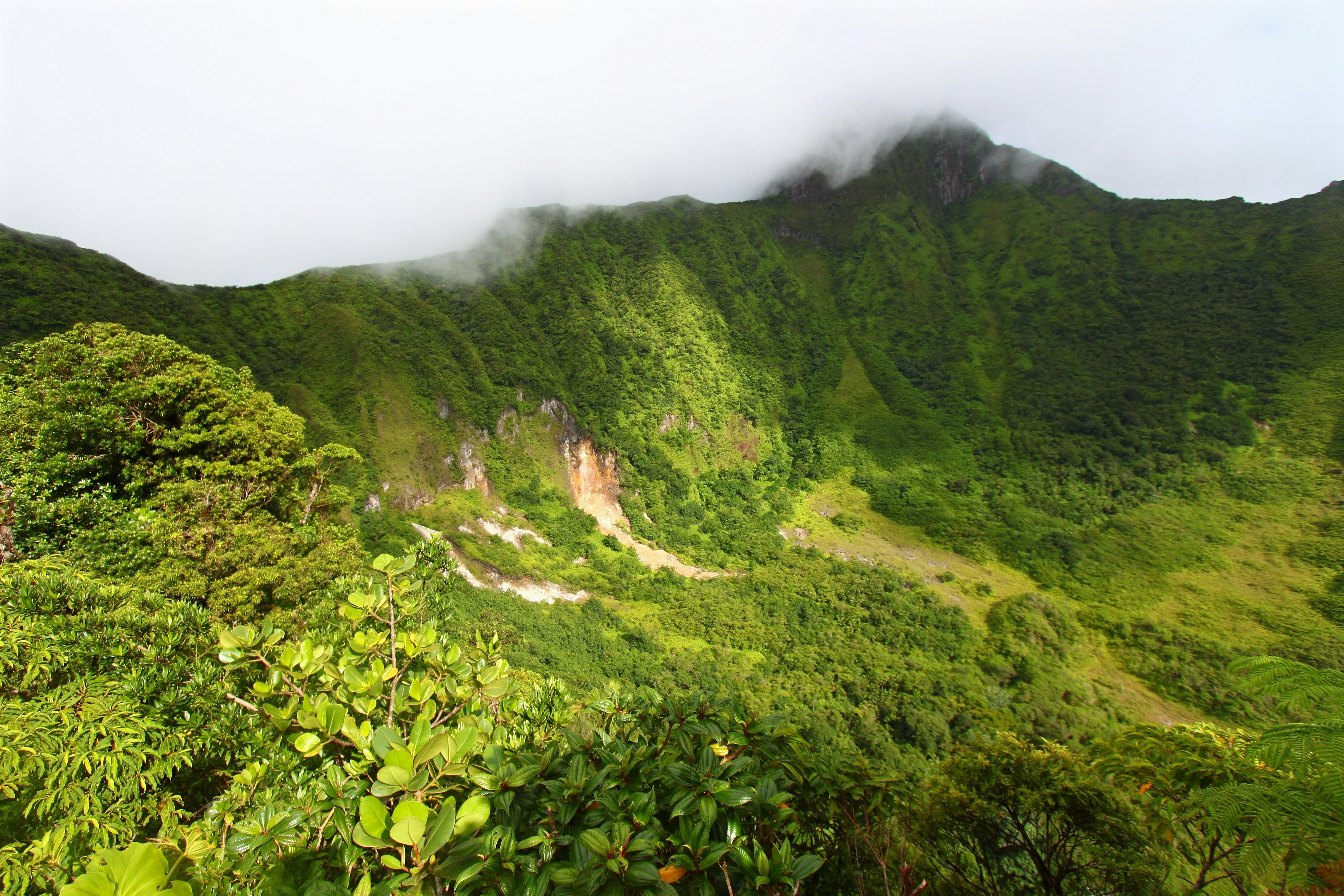
7. Climb up Mt Liamuiga
Views across St Kitts, nearby Nevis and more distant Antigua are among the rewards for climbing Mt Liamuiga, the extinct 1156m (3792ft) volcano that looms over the island.
The 4km (2.5-mile), 2½-hour trek to the top – the first two-thirds of which is mostly through shady, dense rainforest – is a popular excursion for athletic visitors.
The final ascent is the real challenge, with plenty of boulders and tree roots to navigate on the steep trail. Besides the sweeping views across the sea, the summit vantage point lets you peer down into the deep crater, which has a seasonal lake and active fumaroles.
Planning tip: Treks begin in Newton Ground, and the services of a guide are highly recommended.
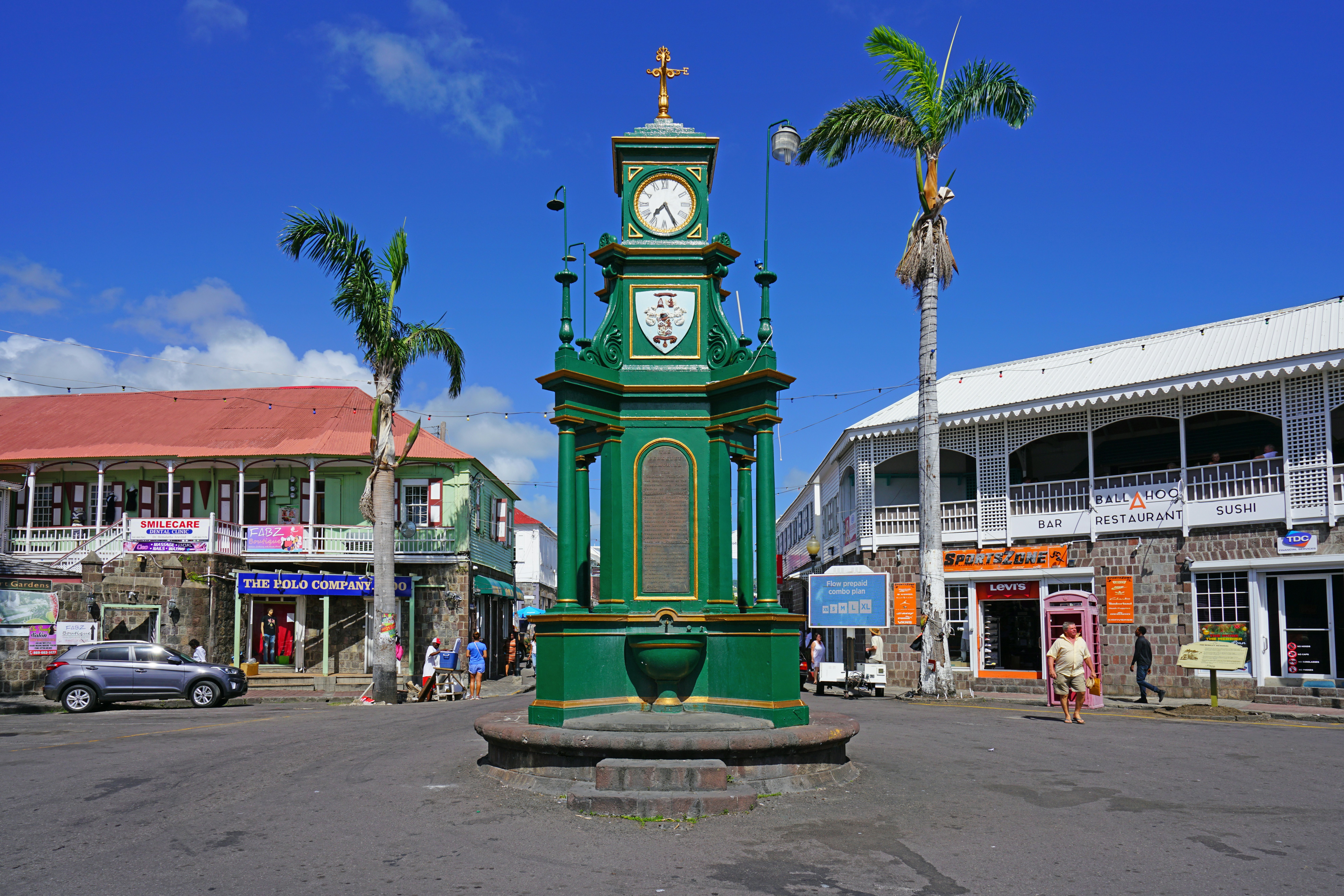
8. Watch the world go by in Basseterre's Circus
St Kitts’ small principal city, Basseterre, has an equally diminutive focal point known as the Circus. Although oft-repeated local lore claims it was modeled on London’s Piccadilly Circus, this Circus has little in common with its far more frenetic Commonwealth cousin. Y
es, four main roads converge here, but the scale is small and the vibe relaxed.
A Victorian-era artifact, Berkeley Memorial Clock, rises from the center of traffic. Meeting in the shadow of this green-hued, gold-trimmed edifice is a local tradition.
Planning tip: Find a seat on the terrace of a cafe at one of the modest surrounding buildings, which combine elements of island and Georgian style, and enjoy superb people-watching.
9. Honor the past at Bloody Point
The French and English battled for supremacy in the Caribbean for more than 200 years; however, the two historic rivals combined forces in 1626, when the Indigenous Carib people on St Kitts attacked the European colonists.
Some 6km (4 miles) northwest of Basseterre more than 2000 Caribs were killed at the bleak, rocky crevice – hence the name. Signboards lay out the history, and a small concrete bridge offers an ideal perspective for reflection on the conquest of the region.
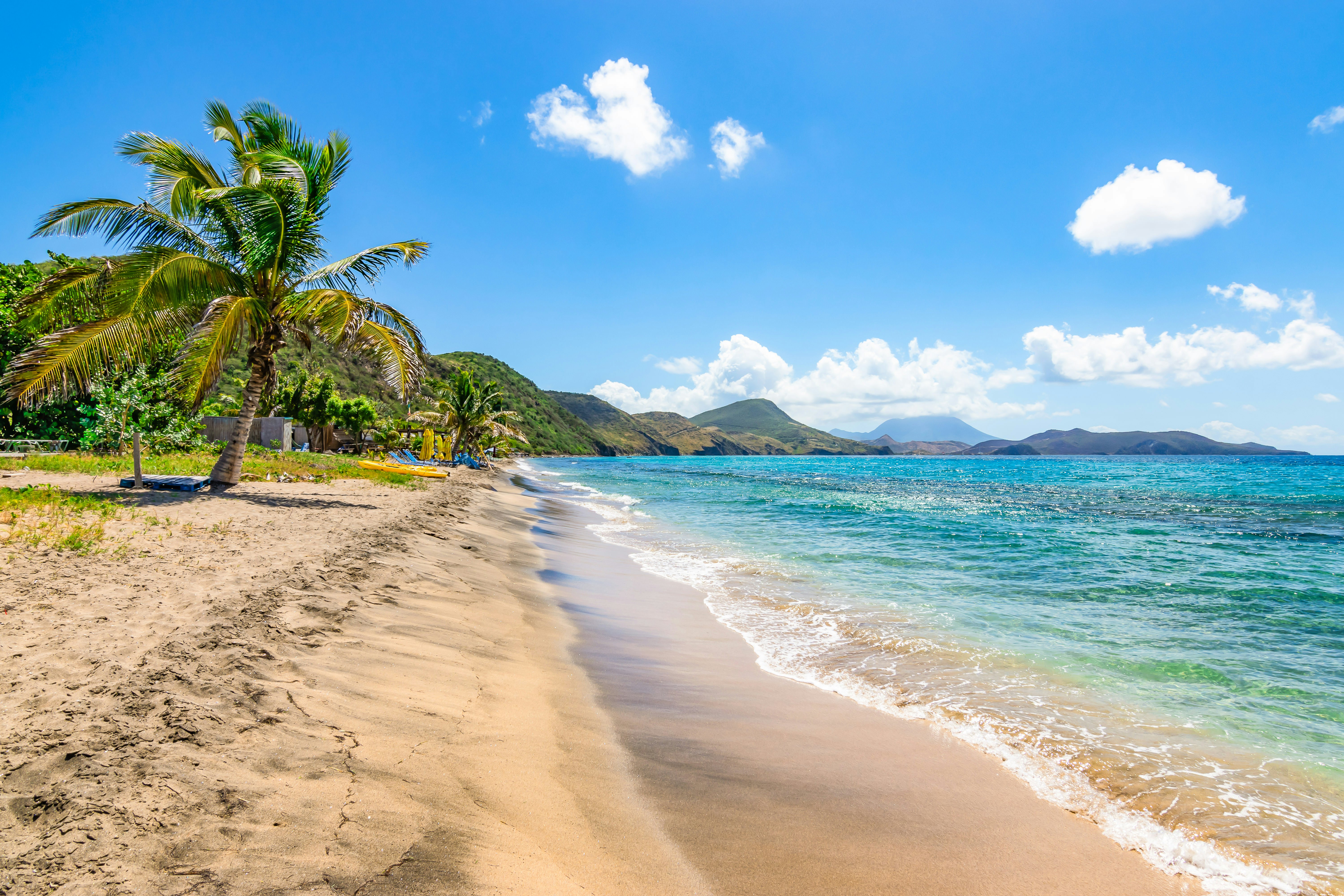
10. Get out on the water on a boat trip
Both excursion-minded day-trippers from cruise ships and longer-term visitors will see all sorts of offers for waterborne adventures. Some tours include a stop at a beach on nearby Nevis; other excursions are timed to catch the sunset, and some feature a beach barbecue.
Boats range in size from small fishing craft right up to large catamarans, where the party never stops – on and off the deck.
11. Chart the past at the National Museum
The same volcanic limestone blocks used to build structures great and small across St Kitts form the walls of the two-story National Museum in Basseterre, which opened in 1894 as the Treasury Building.
Exhibits here trace the island’s history, from the Indigenous Carib people through the enslavement and plantation era and on to independence in 1983.
Look for photographs from the 19th century, which unflinchingly document the lives of the enslaved workers in the sugar and rum trades. The human drama across the centuries is particularly astonishing given the island’s small size: just 176 sq km (68 sq miles).
12. Hang out with locals at South Friar’s Bay
This long, south-facing beach is a favorite of the 40,000 residents of St Kitts – the snorkeling is good right off the beach, and the swimming is excellent.
Bars popular with visitors bookend the sand, but along the middle portion you’ll find casual cafes and stalls where people unwind after work, on their days off and always on Sundays. Look for locally caught seafood like grouper served simply right off the grill.
The vibe is mellow, friendly and infused with a pulsing soca beat that revolves around limin' (hanging out, drinking and talking).

13. Head out to a dive site or snorkel from a cove
You can go snorkeling and diving in coves all around St Kitts. There are more than 25 dive sites, including several shipwrecks. Coconut Tree Reef is in excellent condition and rewards divers from 12m to 34m (39ft to 110ft) below the surface.
Just off Brimstone Hill, Sandy Point National Marine Park has reefs and sea turtles. Operators organize boat trips that cater to varying skills and interests, from those looking for a selfie with a fish to serious divers ready to explore the depths.
Most beaches in the south have vendors with snorkeling gear you can use right offshore. A top choice is White House Bay, which has reefs and shipwrecks.
14. See Nevis from Cockleshell Beach
Nevis is the other half of this island nation, and its conical shape is best viewed from Cockleshell Beach, on the bay of the same name at the southern tip of St Kitts. The powdery white sand stretches for more than 3km (2 miles), and it's as alluring as any in the Caribbean.
Planning tip: The scene can get frenetic when large cruise ships are in port, so if you prefer a more laid-back scene, pick a less-visited day. Cafes and bars of varying formality and watersports vendors offer myriad ways to enjoy your time here.
15. Escape to Dieppe Bay Beach
While the beaches at the south end of St Kitts justifiably get all the attention, the cove at Dieppe Bay on the northern tip offers a wonderful escape – at times, it can feel like your own private beach.
Dark, nearly black volcanic sand mixes with strands of lighter colors. The surf is gentle thanks to offshore reefs, and the vibe is the epitome of mellow, as the small village is quiet and almost tourist-free.
Planning tip: A couple of simple cafes offer views that match their fresh local fare in appeal.














